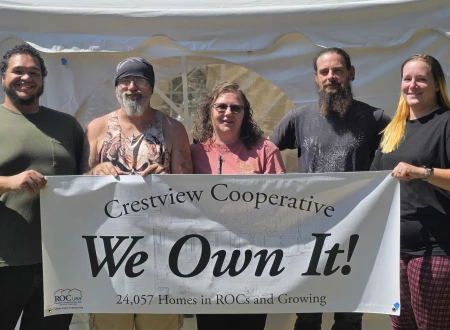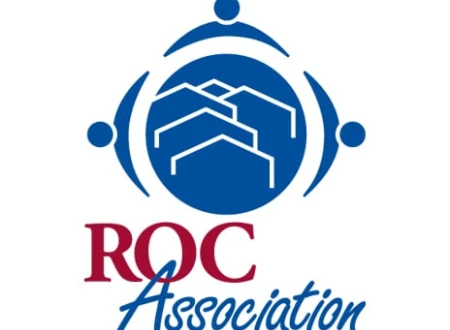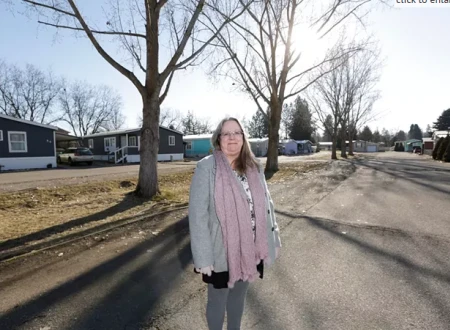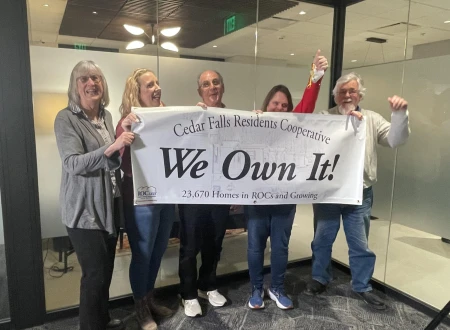HALIFAX, Mass.—In early January, Halifax Estates Board President Debbie Winiewicz had the pleasure of depositing a check for $2,550 into the community’s operating account. The money was the hard-earned first commission of the community’s new volunteer real estate committee.
It marked the first home sale for the real estate committee at Halifax Estates, a 55-and-up resident-owned community consisting of 430 homes. Since the first sale in January, the committee has earned a total of $7,950 in commissions through the sale of three homes. Currently, four additional homes are listed for sale through the sales committee.
Thanks to a legal loophole in the state of Massachusetts that lists manufactured homes as property instead of real estate, the community can list the homes for sale in their community without needing a licensed real estate agent. The community earns a three percent commission on each sale and puts the money back into the community – a source of revenue that helps keep site fees low. Buyers and sellers are still free to choose their own realtors or sell their own homes.
To get organized, the sales committee, which is made up of 10 volunteers, set up an office in an empty room of the office building at Halifax. Two residents of the community who are real estate agents and had been previously conducting sales in the community stopped working within Halifax and instead began provided training to the committee, including paperwork and pricing techniques.
Volunteers also take photos of the homes, maintain the listings on major realty websites like MH Village, Zillow and Realtor.com, attend showings, line up inspections, and prepare materials for closings. Interested buyers can call or stop in during the open office hours, which are also manned by the volunteers.
Winiewicz credits ROC Association Director Kim Capen, Colleen Preston from Cooperative Development Institute – the ROC USA® Network Certified Technical Assistance Provider for Halifax Estates – and property manager Chris Yule from Bristol South as being big supporters of the project.
Capen helped form a similar real estate committee at his own resident owned community, Medvil Cooperative in Goffstown, N.H., and provided in-person advice to the committee at Halifax Estates.
“We told Kim what we wanted to do, and he said, ‘I’ll be right down!’” said Winiewicz.
“It has been so great to see this community pull together proactively to face budget challenges with such an effective program,” said Preston. “It benefits buyers and sellers to have on-site services available to them and it benefits all cooperative members when the rent comes due every month. Our thanks go out to Kim Capen and ROC Association for all their help in creating such an innovative new revenue stream for the Halifax community.”
Winiewicz said Halifax Estates has some big plans for the income generated from the home sale commissions. In addition to ensuring that monthly site fees remain stable, the community is also interested in pursuing energy-efficiency initiatives to help offset community expenses.
When asked if she had any advice to give to other ROCs interested in forming a real estate committee, Winiewicz said, “It’s not as complicated as it sounds. We did it in steps, we had the office space available in our building. The committee made a list of supplies they would need, and had meetings where they were trained on paperwork and rules. It took about three months to get up and running.”
The Halifax Estates sales committee is also offering advice to other interested ROCs – they can be reached via email at halifaxestatesales@outlook.com.







